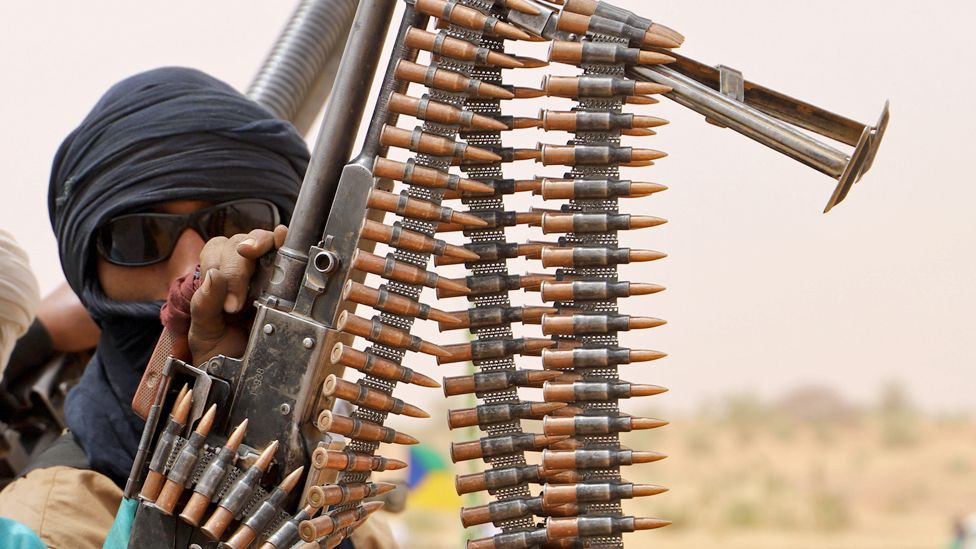-

-
-
Loading

Loading

There is currently intense fighting taking place in northern Mali, as Tuareg rebels claim to have seized control of the town of Bamba from the army. The rebels have also reported killing more than 80 soldiers in the central region of the country. While the government has confirmed that an army base in the Mopti region was targeted, no further details have been provided. This escalation of violence coincides with the withdrawal of UN peacekeepers from Mali, as ordered by the junta. The recent attack on the town of Dioura marks the furthest south that Tuareg rebels have engaged in hostilities since August, following the collapse of a 2015 peace agreement. The presence of Russian Wagner Group mercenaries since December 2021 has failed to quell the growing violence, which is not only orchestrated by the Tuareg rebels but also by Islamist militant groups. The army had previously been attacked in Bamba by al-Qaeda-linked jihadists in September. Describing the clashes in Bamba on Sunday as "intense," the military has referred to the fighters involved as "terrorists," without explicitly naming them. The Co-ordination of Azawad Movements (CMA), an alliance of Tuareg groups, declared that they now control the area surrounding Bamba. These rebels oppose the army's occupation of bases left vacant by UN troops. Previously, the Tuareg rebels had aligned themselves with the Islamist militants who took control of northern Mali in 2012, which prompted intervention from France and the UN to prevent their advancement toward the capital, Bamako. Despite signing the Algiers peace agreement in 2015 with the Malian government, jihadist groups continued to carry out attacks from their desert strongholds. The persistent insurgency ultimately led to Mali's military seizing power in 2020, accusing the civilian government of failing to ensure security. The military pledged to end militant attacks and called for the withdrawal of French forces while enlisting the help of Wagner fighters. However, civilian-targeted violence in Mali has risen by 38% this year, according to the Armed Conflict Location and Event Data project. The increase has been attributed to an al-Qaeda-linked group (responsible for 33% of the attacks), as well as the military and Wagner Group (accounting for 29% of the attacks) as they encroach upon territories that have mostly been outside of the state's control for over a decade. These operations often target civilians from different communities, with the belief that they support militant and rebel groups. The report by the Armed Conflict Location and Event Data project also highlights the brutal tactics employed by Wagner, including torture, summary executions, beheadings, the ejection of prisoners from aircraft, and the booby-trapping of corpses. The reawakening of the Tuareg rebellion, along with the growing jihadist insurgency, poses significant threats to the stability and security of civilian areas throughout Mali. The UN is set to complete its withdrawal from Mali by the end of December.